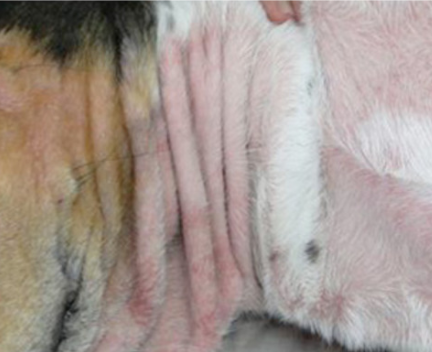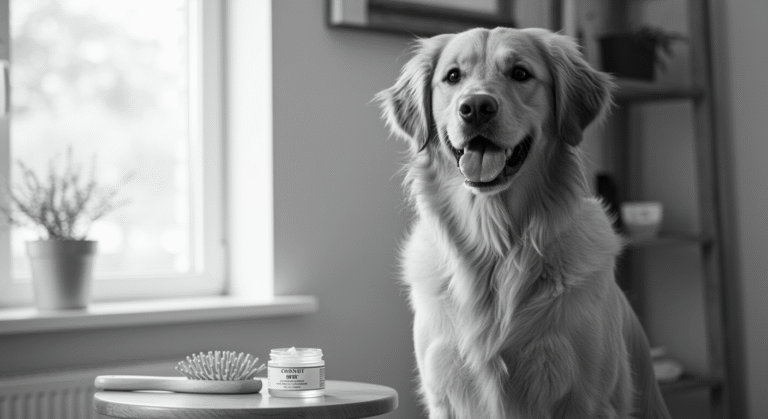Understanding Yeast Infections in Dogs
Causes and symptoms of yeast infections in dogs
Yeast infections in dogs can be caused by a variety of factors, including allergies, a weakened immune system, or an overgrowth of yeast naturally present in the body. Common symptoms of a yeast infection in dogs include excessive scratching or itching, red and inflamed skin, hair loss, and a strong, unpleasant odor.
Effects of yeast infections on dogs’ overall health
Yeast infections can have a detrimental effect on a dog’s overall health. The constant itching and discomfort can lead to secondary skin infections and open sores. In severe cases, yeast infections can also affect the ears, leading to ear inflammation and discomfort. If left untreated, yeast infections can have a negative impact on a dog’s quality of life.
To help manage and treat yeast infections in dogs, it’s important to maintain proper hygiene, provide a balanced diet, and use appropriate medicated shampoos or creams. Consulting with a veterinarian is crucial for proper diagnosis and treatment options tailored to your dog’s specific needs. By taking proactive measures, you can help alleviate the discomfort caused by yeast infections and improve your dog’s overall well-being.

Homemade Dog Food for Yeast Infections
Benefits of homemade food for dogs with yeast infections
Treating a yeast infection in dogs can be a frustrating and ongoing battle. However, incorporating homemade food into their diet can offer several benefits in managing and alleviating these infections.
- Avoiding allergens: Commercial dog food often contains allergens like wheat, corn, and soy, which can worsen yeast infections. By preparing homemade meals, you have complete control over the ingredients and can avoid potential triggers.
- Improved nutrition: Homemade dog food allows you to provide high-quality ingredients, ensuring balanced nutrition. This can boost the immune system and promote overall health, which is crucial in combating yeast infections.
Key ingredients to include in homemade dog food recipes
When preparing homemade food for dogs with yeast infections, consider incorporating these key ingredients:
- Protein: Opt for lean sources of protein like chicken, turkey, or fish. Protein helps strengthen the immune system and repair damaged tissues.
- Low-carb vegetables: Select vegetables such as broccoli, zucchini, and green beans, which are low in carbohydrates. Yeast thrives on sugar, so limiting their intake can help control the infection.
- Healthy fats: Include healthy fats like salmon oil or coconut oil. These fats have anti-inflammatory properties and can support skin and coat health.
Remember to consult with your veterinarian before implementing any dietary changes for your dog, especially if they have a yeast infection. Homemade dog food can be a beneficial addition to their treatment plan, providing them with the nutrition they need while supporting the fight against yeast infections.

Homemade Dog Treats for Yeast Infections
Nourishing homemade treats for dogs with yeast infections
When it comes to your furry friend’s health, you want them to feel their best. If your dog has a yeast infection, incorporating homemade treats into their diet can provide some relief. Here are some nourishing treats you can make at home:
- Coconut Oil Biscuits: Coconut oil has antimicrobial properties that can help combat yeast infections. Mix coconut oil with whole wheat flour, peanut butter, and water to create a dough. Cut it into biscuit shapes and bake until golden brown.
- Pumpkin and Oatmeal Balls: Oatmeal and pumpkin are both soothing ingredients that can alleviate yeast infection symptoms. Combine cooked oatmeal, canned pumpkin, and a touch of honey. Form the mixture into small balls and refrigerate until firm.
Tips for choosing healthy ingredients for dog treats
When making homemade treats for your dog, it’s important to choose ingredients that are healthy and safe. Here are a few tips:
- Avoid Allergens: If your dog has a yeast infection, it’s best to avoid ingredients like wheat, corn, soy, and dairy, which can exacerbate the condition.
- Stick to Whole Foods: Opt for natural and wholesome ingredients like lean meats, fruits, vegetables, and whole grains.
- Consult with a Veterinarian: If your dog has a yeast infection, it’s important to consult with a veterinarian before making any dietary changes or introducing homemade treats.
By following these tips and incorporating homemade treats into your dog’s diet, you can provide them with nourishing snacks that may help alleviate their yeast infection symptoms. Remember to monitor their condition and seek professional advice if needed.
Natural Remedies for Yeast Infections in Dogs
Using probiotics to combat yeast infections in dogs
When it comes to treating yeast infections in dogs, probiotics can be a valuable ally. Probiotics are beneficial bacteria that can help restore the balance of microorganisms in your dog’s gut. By introducing these friendly bacteria into their system, you can strengthen their immune system and promote a healthy digestive tract. This, in turn, can help fight off yeast overgrowth.
Some common probiotic supplements for dogs include Lactobacillus acidophilus and Bifidobacterium bifidum. These can be given orally or added to their food regularly to support their overall health and well-being.
Herbal remedies and supplements to support dogs’ immune system
In addition to probiotics, there are several herbal remedies and supplements that can help support your dog’s immune system and combat yeast infections. Some popular options include garlic, oregano oil, and coconut oil.
Garlic has natural antifungal properties and can be added to your dog’s food in small amounts. Oregano oil, on the other hand, is known for its antimicrobial properties and can be diluted with a carrier oil before applying topically or adding to their food. Coconut oil is another potent antifungal and can be applied topically or added to their diet.
Remember to consult with your veterinarian before starting any new treatment or supplement regimen for your dog. They can guide you on the appropriate dosage and help monitor your dog’s progress. With these natural remedies and the right guidance, you can help your furry friend find relief from yeast infections and support their overall health.

Important Considerations for Homemade Dog Food
When it comes to addressing yeast infections in dogs, homemade food can play a crucial role in their overall health. However, there are some important considerations to keep in mind.
Balancing nutritional needs in homemade diets for dogs with yeast infections
A balanced diet is essential for dogs with yeast infections, as it can help boost their immune system and combat the infection. Incorporating ingredients that are high in protein, low in carbohydrates, and rich in essential fatty acids can help control the growth of yeast. Foods such as lean meats, fish, green leafy vegetables, and coconut oil can be beneficial for their anti-inflammatory and antifungal properties.
Consulting with a veterinarian for guidance and monitoring progress
While homemade food can be a great option, it’s important to work closely with a veterinarian. They can provide guidance on the specific nutritional needs of your dog based on their condition. Regular check-ups and close monitoring of your dog’s progress will ensure that their homemade diet is effectively managing the yeast infection.
By paying attention to nutritional balance and seeking professional guidance, homemade food can be a valuable tool in addressing yeast infections and promoting overall health in dogs.
Frequently Asked Questions
Common concerns about homemade food for dogs with yeast infections
Many pet owners may have concerns about feeding their dogs homemade food when dealing with yeast infections. Here are some common concerns and their answers to help you make informed decisions for your furry friend.
Answers to commonly asked questions
- Can homemade food help with yeast infections? Yes, homemade food can be beneficial for dogs with yeast infections. By providing a balanced diet, you can support their immune system and help fight off the infection.
- What ingredients are good for dogs with yeast infections? Ingredients like lean meats, low-glycemic vegetables, and probiotics can be beneficial. Avoiding sugary foods and grains can help prevent yeast overgrowth.
- How can I ensure a balanced homemade diet? It’s important to consult with a veterinarian or a veterinary nutritionist to ensure your homemade dog food meets all their nutritional needs. They can guide you on portion sizes, ingredient choices, and supplements if needed.
- How long does it take to see improvements? The time it takes to see improvements can vary. It’s important to be patient and consistent with the homemade diet and any prescribed treatments. Monitor your dog’s symptoms and consult with your veterinarian if there are any concerns.
Remember, homemade food should always be made with proper research and guidance to ensure your dog’s health and well-being.






